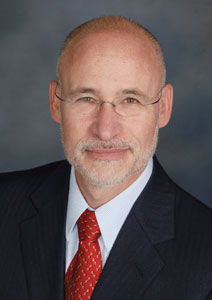 “It’s not your grandfather’s seder,” says Rabbi Arthur Nemitoff when describing the Community Second Night of Passover Seder sponsored by the Rabbinical Association of Greater Kansas City, Jewish Family Services and supported by congregations. It takes place at 6:30 p.m. Saturday, April 7, at The Temple, Congregation B’nai Jehudah.
“It’s not your grandfather’s seder,” says Rabbi Arthur Nemitoff when describing the Community Second Night of Passover Seder sponsored by the Rabbinical Association of Greater Kansas City, Jewish Family Services and supported by congregations. It takes place at 6:30 p.m. Saturday, April 7, at The Temple, Congregation B’nai Jehudah.
Reservations are currently being accepted for the seder and must be received by Wednesday, March 28. After that date, reservations will be accepted on a space-available basis. Reservation forms are available at area congregations and at the Rabbinical Association’s website, www.kcrabbis.org. For information, or to inquire about confidential financial assistance, contact Annette Fish, administrator/program director for the Rabbinical Association by email, or call 913-327-4622.
The food will be kosher-for-Passover and prepared under supervision of the Vaad HaKashruth of Kansas City. The meal will be served under Rabbi Nemitoff’s supervision.
As in year’s past, this contemporary seder will be multi-denominational, noted Congregation Ohev Sholom’s Rabbi Scott White. Rabbi Nemitoff, senior rabbi of the host Congregation B’nai Jehudah, is once again the lead organizer for the spiritual portion of this event. He said this year’s service features the participation of more local clergy from Reform and Conservative congregations than ever before. Besides Rabbis Nemitoff and White, participating clergy include Rabbi Alexandria Shuval-Weiner and Cantor Sharon Kohn of B’nai Jehudah; Rabbi Alan Cohen and Hazzan Rob Menes of Congregation Beth Shalom and Doug Alpert, spiritual leader of Congregation Kol Ami.
This seder will be family-friendly and include traditions and customs of the Passover seder while incorporating meaningful events of our day into an interactive and hands-on seder experience. Modern day readings and additions will focus on maggid, the telling of the Exodus.
For the last several years this seder has been an experiential seder. That is what sets the evening apart from what one might remember as “your grandfather’s seder,” Rabbi Nemitoff said.
“This is not sitting at a table, either small or large and having Uncle Sammy sleep during half the seder and having Aunt Bertha talk through it all and having your grandpa shush everybody,” Rabbi Nemitoff explained.
The plans for the evening are not yet totally complete, but Rabbi Nemitoff expects it will begin as it has the past couple of years with the participants being in Mitzrayim, the land of Egypt.
“We will experience what it meant to be slaves in Egypt. We will experience the first part of our seder in a sense of closeness and discomfort and without any sort of what I would call lavish relaxation,” Rabbi Nemitoff said.
That’s an aspect of the seder that’s made an impact on participants.
“I enjoyed the entire evening from the moment I arrived,” wrote one participant who is self-described as of advanced age.
“The initial gathering place consisting of the long sparsely adorned tables set the stage for the feeling that we were indeed still slaves in Egypt and it seemed so right that we did what we did there and then began our trek to the Promised Land and the feast that followed.”
As the evening progresses participants will hear the maggid (the telling of the Passover story) and rotate through creative stations. If there are enough families to warrant it, Rabbi Nemitoff said a special family section may be created for the telling of the maggid.
One seder participant from the past noted that the creative telling of the story was “awesome!”
“I invited a friend who is a non-Jew; she was overwhelmed by the experience and enjoyed the informative way the rabbi told the Passover story.”
At the different stations, participants will have the opportunity to sing songs led by Cantor Kohn and Hazzan Menes. They will also help prepare a meal for the homeless.
“One of the key statements in the Passover Haggadah is let all who are hungry come and eat. We take that seriously in our community with all of our various food collection programs and food serving programs. So one of the things that our participants will do is prepare a kosher for Passover meal that will be served to the hungry in our community during the following week,” Rabbi Nemitoff said.
This mitzvah project has proven to be a very popular part of the evening recently.
“One theme my family found most interesting is that we take care of feeding all who are hungry. I loved that and thought it was the best message for my kids and for me,” was written on a post-seder comment card.
Rabbi Nemitoff said the seder will be concluded in lavish style, with tables with table cloths and fine food. He expects it will end by 9:30 p.m.
“We will have a wonderful community experience,” he said. “We really do hope the community will consider joining us. It’s not B’nai Jehudah’s seder. This is not Beth Shalom’s seder. This is not New Reform’s seder. This is the community seder and it’s really meant to allow everybody in the community to come together and celebrate,” he said.
The food, and the entire evening, has gotten rave reviews in the past.
“Very enjoyable! Very creative! Food was very good. The idea of different groups breaking up and rotating to experience different things was great!”


